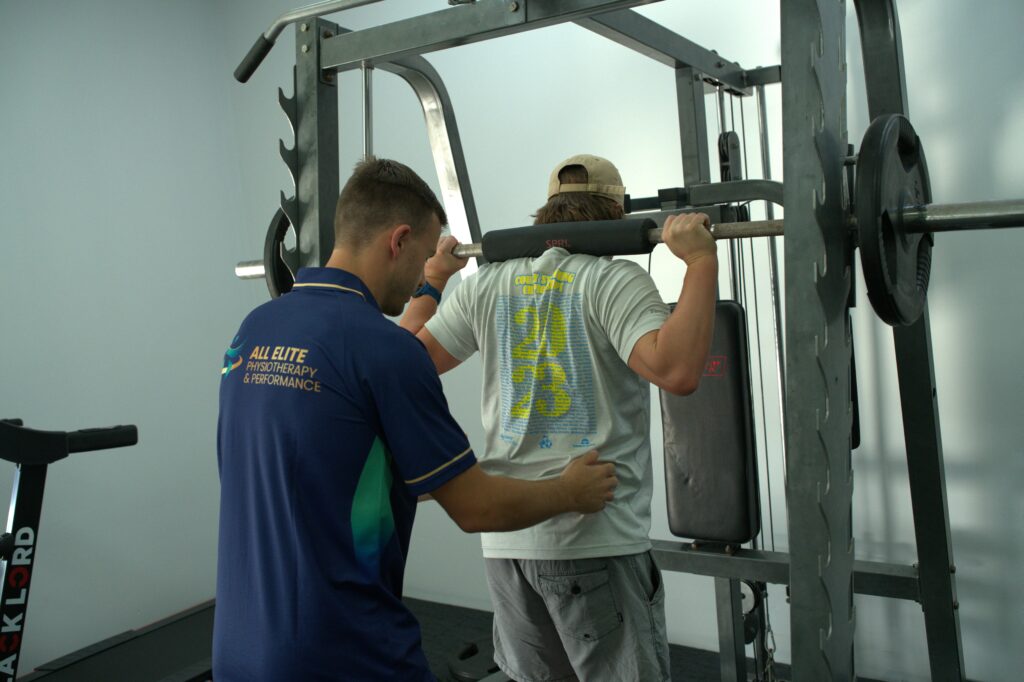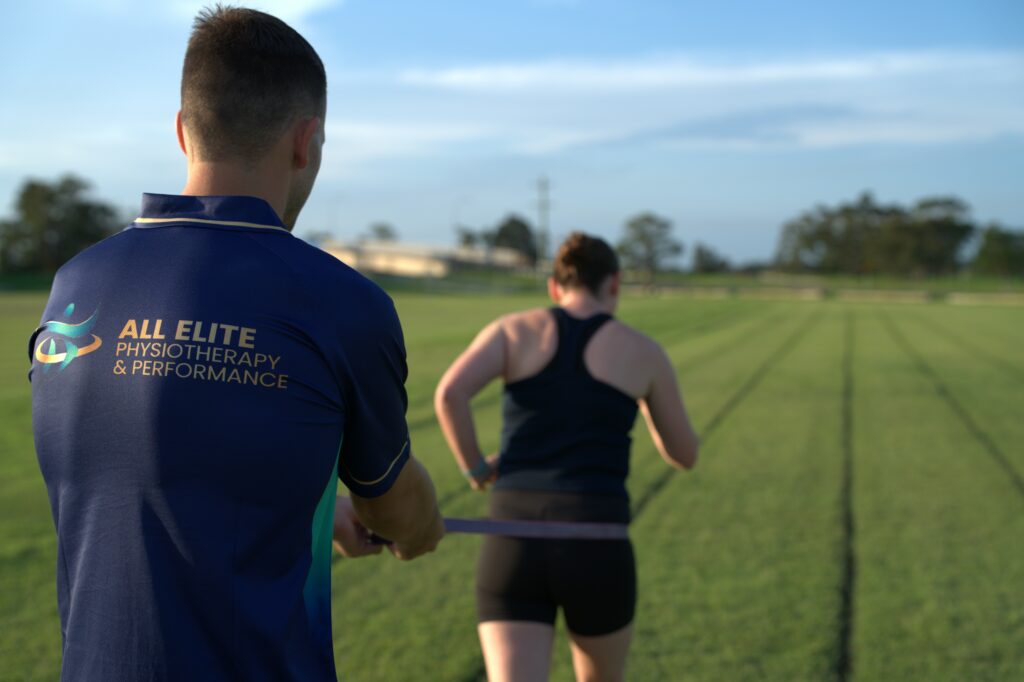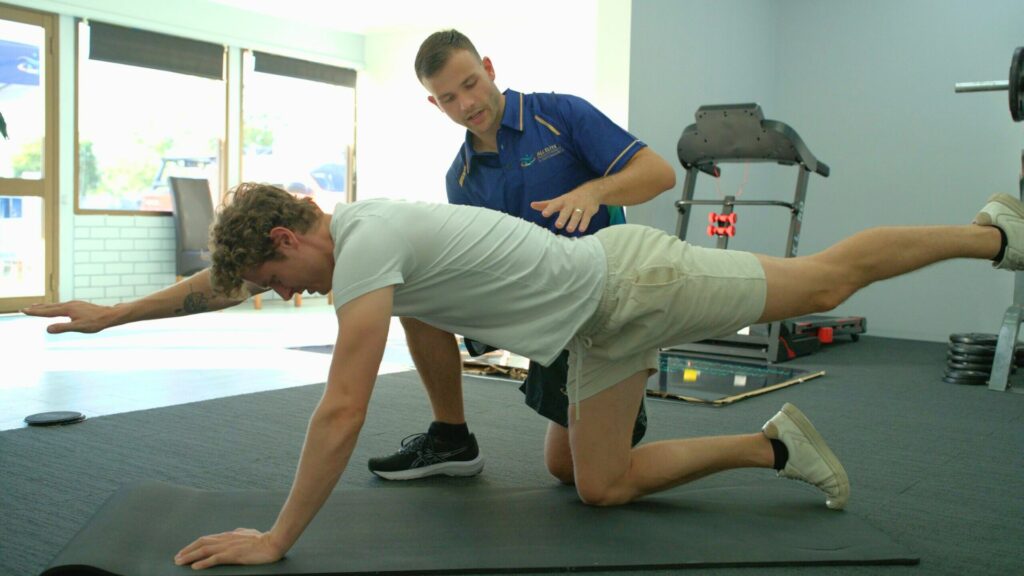How Expert Physiotherapy Keeps Newcastle's Athletes in Action
From amateur runners to pro rugby players, Newcastle hosts an extremely active sporting community where athletes and fitness enthusiasts push their bodies to the limit every day. As rewarding the thrill of competition and reaching fitness goals may be, there are always challenges with respect to possible injury and optimum performance. This is where professional physiotherapy in Newcastle can be crucial. The focus for the physiotherapists is injury recovery, injury prevention, and performance enhancement to help athletes stay on top of their game.
What is Physiotherapy?
Physiotherapy is the health profession committed to helping people restore and maintain their best possible level of physical function and mobility. It is not just about treating injuries; rather, it is injury prevention and performance enhancement.
Physiotherapy will provide you a comprehensive analysis of your physical health and movement patterns, along with treatment plans catered specifically to your goals during the physiotherapy appointment. Techniques can also range from manual therapy and exercise prescription to advanced modalities including dry needling or neuromuscular electrical stimulation .
Unlike what would be expected from a GP visit for general checkups, physiotherapy dives deeper into musculoskeletal and movement problems, offering specific solutions for your injuries whether you are an athlete, or someone who has hurt themselves on the weekend.

Why is Physiotherapy Better for Musculoskeletal Injuries than a GP
While general practitioners are vital in the diagnosis and treatment of a wide variety of medical conditions, physiotherapists specialise in musculoskeletal health and, therefore, offer advantages tailored to these particular issues:
Specialised Expertise
Physiotherapists are specially trained in biomechanics, joint function, and muscle physiology, equipping them with a superior ability to evaluate, diagnose, and treat musculoskeletal disorders compared to a general practitioner.
They are skilled in identifying subtle movement dysfunctions or weaknesses that may contribute to chronic pain or recurring injuries, providing insights that may not typically be available through a GP.
Hands-on Treatment
A GP generally diagnoses the problem and prescribes medication or refers the patient to a specialist. Physiotherapists, on the other hand, utilise manual approaches such as manual therapy, massage, and joint mobilisation to address the root causes of pain or impairment.
These methods not only provide immediate pain relief but also restore function and reduce the likelihood of recurrence.
Personalised Rehabilitation Plans
Unlike GPs, who may provide general exercise advice or referrals, physiotherapists design tailored rehabilitation programs that consider the unique needs, goals, and lifestyles of each individual. For instance, a physiotherapist may implement sport-specific exercises for an injured athlete or ergonomic adjustments for an office worker with chronic neck pain.
Long-Term Focus
While GPs often address acute symptoms like pain or swelling, physiotherapists adopt a long-term perspective. They focus on identifying and correcting underlying issues, such as poor posture, muscle imbalances, or faulty movement patterns, to facilitate sustainable recovery.
This holistic approach minimises the risk of recurrence and promotes lasting well-being.
The Role of Physiotherapy in Sports
1. Prevention of Injury

- Identifying Weak Points - Physiotherapists assess movement patterns in relation to strength and range of motion to identify potential weaknesses or imbalances. This reduces the risk of overuse injuries or poorly executed movements.
- Personalised Tips - Tailored warm-up routines, cool-down exercises, and sport-specific training significantly reduce injury rates. For example, a footballer may benefit from hip mobility exercises to enhance kicking efficiency.
- Education - Athletes are taught proper form, the correct use of equipment, and effective post-game recovery techniques to maintain peak physical condition.
2. Performance Enhancement
- Optimising Biomechanics - Advanced techniques, such as motion analysis, help refine specific movements or techniques. For instance, runners can improve stride efficiency, while swimmers optimise stroke mechanics.
- Building Strength and Resilience - Tailored strengthening programs enhance endurance, strength, and agility. These might include plyometric exercises for explosive power or stability exercises for balance in dynamic sports.
- Mental Preparation - Physiotherapists address the psychological aspects of recovery, helping athletes build confidence in their physical abilities after an injury.
3. Injury Recovery
- Speeding Up the Healing Process - Evidence-based treatments, including manual therapy, blood flow restriction training, and electrotherapy, aid in tissue repair, reduce inflammation, and accelerate recovery.
- Progressive Rehabilitation - Recovery plans are customised to gradually restore strength, mobility, and functionality. For example, a basketball player recovering from an ACL injury may progress from balance drills to jumping and lateral movement exercises.
- Recurrence Prevention - By addressing the root cause of an injury, physiotherapists help athletes return to their sport with confidence, minimising the risk of reinjury. This might involve adjustments in posture, muscle activation, or movement mechanics.
4. Supporting Multidisciplinary Care
- Collaboration with Other Professionals - Physiotherapists work alongside coaches, sports psychologists, and dieticians to provide a holistic health and performance package for athletes.
- Prehabilitation - Physiotherapists design prehabilitation programs to optimise strength and mobility before surgery, ensuring the best possible surgical outcomes and faster postoperative recovery.
What Sporting Injuries Require a Physio?

Some of the most common injuries for which athletes from Newcastle seek physiotherapy treatment include the following:
Sprains and Strains
These are among the most frequent sports injuries and involve overstretching or tearing ligaments or muscles. Physiotherapists manage these injuries immediately, often using manual therapy to reduce swelling and restore mobility, followed by strengthening exercises to prevent recurrence.
Tendon Injuries (e.g., Achilles Tendinopathy)
Most tendinopathies result from overuse, often associated with repetitive sports such as running, jumping or tennis. Treatment typically combines eccentric strengthening exercises, load management strategies, and modalities such as shockwave therapy to stimulate healing.
Knee Injuries – ACL Tears and Meniscal Issues
Physiotherapy is essential both before and after surgery in managing knee injuries. Rehabilitation protocols include progressive muscle strengthening, balance training, and functional exercises tailored to the athlete’s sport. These ensure a safe return to activities such as jumping, pivoting, and running.
Shoulder Injuries – Including Rotator Cuff Tears
Common in overhead sports like swimming or basketball, shoulder injuries often affect stability and range of motion. Physiotherapy addresses these issues through optimising shoulder mechanics, rebuilding strength, and resolving muscle imbalances.
Overuse Injuries
Overuse injuries are prevalent among endurance athletes. Treatment focuses on analysing biomechanics, correcting pathological movement patterns, and designing progressive training programs to promote tissue recovery and adaptation.
Groin and Hip Injuries
These injuries are typical in sports requiring sudden direction changes, such as soccer and hockey. Physiotherapy involves soft tissue therapy, strengthening the hip muscles, and improving flexibility and stability through targeted exercises.
Concussions and Post-Concussion Syndrome
Concussions, common in contact sports, require specialised physiotherapy. Treatment may include vestibular rehabilitation, balance training, and a gradual return to physical activity under close supervision.
This focused, evidence-based approach not only helps athletes recover effectively but also minimises the risk of injury recurrence, allowing them to return to their sport stronger and more resilient.
The Benefits of Expert Physiotherapy for Newcastle Athletes
Preventative Care
- Early identification of potential issues before they escalate into major problems.
- Customised advice on injury prevention strategies, including proper warm-up routines, effective cool-downs, and sport-specific techniques.
Faster Recovery
- Utilising evidence-based techniques such as soft tissue mobilisation and tailored exercise programs to minimise downtime.
- Focused on restoring full mobility and strength to ensure a safe and successful return to sport.
Improved Performance
- Tailored programs designed to meet the specific demands of your sport.
- Advanced biomechanical assessments to identify areas for improvement in speed, agility, and power.
- High-quality physiotherapy delivered with a person-centred approach, ensuring you achieve your goals safely and effectively.
Case Studies and Success Stories from Newcastle Athletes
Hundreds of athletes in Newcastle have transformed their lives through physiotherapy. Here are just a few examples:
Soccer Player’s Swift Return
A young soccer player returned to the field weeks earlier than expected after an ankle sprain. Physiotherapy included balance retraining, proprioceptive exercises, and targeted strengthening of the ankle’s supportive structures, enabling a quicker and safer recovery.
Cycling Efficiency for a Triathlete
A competitive triathlete experienced improved cycling efficiency after physiotherapy. The treatment focused on loosening tight hip flexors and strengthening the core for enhanced stability, allowing the athlete to compete with greater endurance and significantly less discomfort.
Weekend Warrior Back in Action
A recreational runner suffering from shin splints was treated with manual therapy and a graduated return-to-run program. As a result, they successfully participated in the local marathon, pain-free.
How to Choose the Right Physiotherapist in Newcastle

When Choosing Your Physiotherapist in Newcastle, you should consider:
Qualification
Ensure they are accredited and have experience in sports physiotherapy. Look for practitioners affiliated with reputable organisations, such as the Australian Physiotherapy Association. Just like All Elite Physiotherapy and Performance.
Experience
Seek out physiotherapists with proven experience in treating athletes and sports-related injuries, particularly those familiar with your specific sport or activity.
Reputation
Check reviews and references from teammates, coaches, or fellow athletes within the Newcastle community to gauge their reliability and success.
Facilities and Equipment
Choose a clinic with top-notch facilities, including advanced gym and diagnostic equipment, to ensure the highest quality of treatment.
Personal Touch
A strong rapport with your physiotherapist is essential for effective treatment. Select someone who listens to your concerns, understands your goals, and communicates clearly.
A clinic specialising in sports physiotherapy, tailored to the needs of athletes, is undoubtedly the best choice for anyone in Newcastle looking to optimise performance and recovery.
Frequently Asked Questions
What are common injuries among Newcastle athletes?
Common injuries include sprains, strains, tendon conditions such as Achilles tendinopathy, knee injuries involving the ACL and menisci, and overuse injuries like shin splints and stress fractures. These injuries are often caused by overtraining, biomechanical issues, or sudden impacts during training or competition.
Physiotherapy effectively manages these injuries, helping athletes return to their sport stronger and more resilient. For example, a sprained ankle might require specific strengthening and proprioceptive exercises to prevent recurrence.
What techniques do physiotherapists employ for athletes?
Physiotherapists use various techniques tailored to the individual, including:
- Manual Therapy: Joint mobilisation and soft tissue massage to reduce pain and improve mobility.
- Therapeutic Exercises: Strengthening weak muscles, correcting imbalances, and improving overall fitness.
- Dry Needling: Relieving muscle tension and promoting healing.
- Advanced Modalities: Using equipment like shockwave therapy, neuromuscular stimulation and blood flow restriction training to enhance healing and reduce inflammation.
- Education: Teaching proper training methods, posture, and ergonomics to prevent re-injury and ensure treatment effectiveness.
How often should an athlete see a physio?
The frequency depends on the athlete’s needs:
- Rehabilitation: Weekly sessions to track progress and adjust treatment during injury recovery for the greatest benefit.
- Maintenance: Monthly or bi-monthly visits to prevent injuries and maintain peak performance.
- Prevention: Regular evaluations, especially before a sports season, to address potential risk factors.
- Performance Optimisation: Ongoing sessions focused on achieving peak performance as required.
Can physiotherapy enhance athletic performance?
Yes, physiotherapy enhances performance by addressing biomechanical inefficiencies, flexibility, strength, and optimising movement patterns. For example:
- Runners: Gait analysis and corrective exercises improve stride efficiency.
- Swimmers: Shoulder stabilisation exercises enhance stroke mechanics.
- Weightlifters: Refining lifting form reduces joint strain and increases power output.
Why is physiotherapy so important for athletes?
Physiotherapy supports all aspects of an athlete’s physical state, helping prevent injuries, aiding recovery, and improving performance. It ensures athletes remain resilient to the demands of their sport, allowing them to perform at their best while minimising the risk of problems arising.
What is the role of physiotherapy in the prevention of sports injuries?
Physiotherapy plays a pivotal role in preventing sports injuries by leveraging expert knowledge to identify movement inefficiencies, muscle imbalances, and biomechanical risks. Experienced physiotherapists design personalised injury prevention programs, incorporating targeted strengthening exercises, tailored warm-ups, and cool-down strategies. These approaches aim to maximise effectiveness, minimise injury risks, and ensure athletes remain in peak physical condition. Education on proper form, posture, and technique also empowers athletes to avoid overuse or strain-related injuries.

How effective are physiotherapists?
Physiotherapists are highly effective in managing and preventing sports-related injuries due to their clinical experience and evidence-based practices. With a deep understanding of biomechanics, injury mechanisms, and recovery protocols, experienced physiotherapists provide treatments that maximise effectiveness and accelerate recovery. Their ability to customise care for individual needs, whether for injury prevention, rehabilitation, or performance enhancement, ensures optimal outcomes for athletes and individuals alike.
What role do physiotherapists play in the rehabilitation of sports injuries?
Physiotherapists are integral to sports injury rehabilitation, combining expert knowledge with hands-on techniques to restore strength, mobility, and function. They develop progressive rehabilitation plans tailored to the athlete's specific needs, ensuring a safe return to sport. Experienced physiotherapists utilise advanced modalities, such as blood flow restriction training and manual therapy, to maximise effectiveness and address the root causes of injury. By focusing on recurrence prevention and enhancing physical resilience, physiotherapists help athletes recover stronger and more confident.
Taking the First Step Towards Better Performance
Want to take your athletic performance to the next level? Look no further! Book an appointment with our expert physiotherapists in Newcastle today. We’ll help you stay injury-free and performing at your best with personalised care and evidence-based treatments.
Call us on 02 4981 9501 or book online here.
Invest in your health and performance—schedule your physiotherapy session today!
